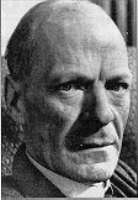

Gilbert Ryle was a professor at Oxford University from 1945 to 1968. He was not really an important philosopher since his ideas were rather shallow and largely borrowed from others (especially the BEHAVIORISTS and WITTGENSTEIN). But he did have a lot of influence, and by embracing "linguistic" or "ordinary language philosophy" helped make Oxford the center of English-language philosophy in the period after World War II. In his best known book, The Concept of Mind (1949), rather than explicate the nature of mind as a set of characteristics (or functions) of the brain, he argued against Cartesian DUALISM by simply trying to explain away mind in the usual behaviorist fashion—i.e., by ignoring it.
Ryle claimed in another little book, Dilemmas (1954), that most or all philosophical problems are in the form of dilemmas: Two opposing, incompatible views, both of which we believe, and pointed to FREE WILL as an example, where we want to believe both that all events have causes and yet that we are free to make choices. (And both things are indeed true, though there is not really any dilemma in this.)

Another favorite idea of Ryle's, this time borrowed from Aristotle, is that many erroneous philosophical notions arise from making "category mistakes", that is, from not noticing that we are treating something as if it were a member of some category that it really is not. Thus in the sentence 'She came home in a sedan chair and a flood of tears' it would be wrong to assume that "a flood of tears" is a means of conveyance just because it is put on a grammatical par with "sedan chair". This example also illustrates what Ryle (following Wittgenstein) claimed was a major tendency of grammar to mislead us philosophically. Ryle said that Cartesian dualism views mind as being in the same category as brain, which leads to all the philosophical confusion about mind. While there is something to this, it is necessary to give some positive explication of mind as well, something that Ryle could not do.